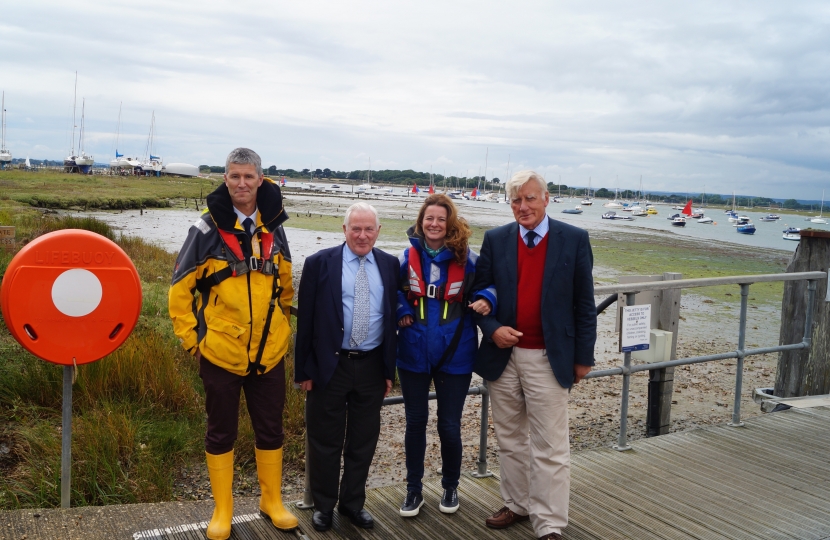
Gillian has worked closely with MPs, agencies and organisations to improve and protecting the environment in and around Chichester.
Protecting the River Ems
Gillian has worked with local councillors from WSCC and CDC respectively, as well as, the community to reduce the rate of water abstraction from the River Ems, that runs through her constituency.
There is a local community group FOTE, or Friends of the River Ems, which has been established to save the river. If you want to be a friend of the River Ems and its streams, please get involved by signing up as a supporter. Email [email protected].
The Ems, one of only about 200 such chalk streams globally. Currently, water is abstracted by Portsmouth Water from the underground sources of the Ems, this campaign is working to support the communities efforts to support wildlife, rare habitats and an important resource for local people by better understanding the impact of abstraction and bring forward changes to these rates to protect the river.
For more information on FOTE click here.
Protecting our Harbour from Sewage
For the latest water quality readings from the Chichester Harbour Conservancy - CLICK HERE
For live release data via Southern Water's BeachBouy Scheme - CLICK HERE
Safe to swim? Check for advisories before you swim - CLICK HERE
Chichester Harbour - (Source, Chichester Harbour Conservancy)
There are 3 wastewater treatment plants that discharge directly into the Harbour at Apuldram, Bosham and Thornham. These were upgraded in April 2008 so all treated sewage now receives Ultraviolet (except Thornham) and bacteriological treatment, and some of the nutrients are removed before the effluent is discharged.
In addition, storm discharges from Lavant WWTW can impact the Harbour via the River Lavant, as can Southern Water activity pumping from the surcharged pipes into the River Lavant to take pressure off the wastewater system in upstream villages such as East Dean. Storm discharges from Budds Farm WWTW in Langstone Harbour are also likely to impact to some degree.
Associated with Southern Waters sewage infrastructure, there are several pumping stations and combined sewage overflows, that can also discharge during storm conditions.
What are storm overflows? - (Source, Southern Water)
During heavy rain, local sewer networks can struggle to cope with the amount of water entering pipes and storage tanks.
When they fill up, we use pressure relief valves built into the network – known as storm overflows – to stop homes and businesses from flooding. These overflows release excess water through outfalls into rivers and the sea. Storm overflows are part of the design of the sewers and are regulated by the Environment Agency. They're used in areas where the sewers were built to carry both wastewater from homes and businesses, and rainwater from roofs, gardens and roads.
Did you know?
Storm overflow releases typically occur during periods of heavy rainfall and can be around 95% rainwater.

